- Home
- P. G. Wodehouse
The Girl in Blue Page 2
The Girl in Blue Read online
Page 2
‘They try to be.’
‘Curious. I’m a comic cartoon aficionado, but I don’t remember ever seeing one by G. G. F. West.’
‘I sign them Jerry.’
‘For heaven’s sake! May I have your autograph, maitre? I’m one of your greatest admirers.’
Jerry gulped to facilitate speech, of which this astounding revelation had momentarily deprived him. Resisting an urge to say that it seemed to draw them very close together, he substituted the weaker ‘Oh, really?’
‘You’ve cheered me up more often than you could shake a stick at. And in my line of business you need constant cheering up.’
‘Why’s that?’
Too much smiling to do. Very lowering to the spirits. I’m an air hostess. And not only lowering to the spirits; extremely wearing on the cheek muscles.’
‘Still, you must meet a lot of interesting people.’
‘Why the still?’
‘You spoke as if you didn’t like the job.’
‘Oh, I do. I like it a lot. One sees the great world and, as you say, one meets a lot of interesting people.’ She laughed. Analysing it, Jerry described it to himself as a silvery laugh. Rather like, he thought, for there was a touch of the poet in him, the sound ice makes in a jug of beer on a hot day in August. ‘I was thinking,’ she explained, ‘of an old man named Donahue who travelled with us a good deal and was always in a bad temper. “Girl!” he used to bellow at me, and he never failed to snarl at me like a wounded puma for not coming quick enough. Finally I told him the trouble was that he always seemed to catch me when I wasn’t in my spiked shoes and running shorts, and after that we got on fine. Somebody told me just before I went on leave that he was dead. I was sorry. Oh yes, it’s quite a pleasant life.’
‘Of course, you really ought to be a barrister.’
‘What makes you say that?’
‘I was thinking of your summing up just now. You were extraordinarily lucid when addressing us. I was stunned by your eloquence. How did you get that way?’
‘I did a lot of debating at school.’
‘Roedean?’
‘Cheltenham.’
‘Good Lord, I was at Cheltenham myself. Not the girls’ school, the other one.’
‘What a shame we never met.’
‘Well, we’ve met now.’
‘We have indeed.’
‘So how about a bite of lunch? No, sorry, I was forgetting. I’ve got to lunch with my trustee.’
‘Have you a trustee? How grand.’
‘How about dinner?’
‘I shan’t be here for dinner. I’m going to Bournemouth to stay with my aunt.’
‘For long?’
‘A few days.’
‘So tomorrow won’t be any good either?’
‘I’m afraid not.’
The day after tomorrow?’
‘I doubt it.’
‘The day after the day after tomorrow?’
‘Still doubtful.’
‘Then let’s make it the day after the day after the day after tomorrow.’
‘Where does that land us?’
‘It’s a Friday. I think’
‘That ought to be all right. Where?’
‘Barribault’s. Round about eight.’
‘I’ll be there.’
She hailed a passing taxi, and was gone, and as he stood there looking after her a passer-by might have observed a soft glow in his eyes, if passers-by do observe soft glows in people’s eyes. Probably they do not, but it was there. He was dreaming an opalescent day dream. Previously he had seemed to see her on the high board, about to make a perfect dive. He now saw her in the office of a registrar licensed to perform marriages, for he was sure that a girl like that would not want one of those ghastly choral weddings with bishops and assistant clergy horsing about all over the place. They would get it all fixed up in a couple of minutes, and later on they would sit together in their cosy little nest like two love birds on a perch. In the long winter evenings that would be, of course. In the summer they would be playing golf or enjoying a refreshing swim.
It was as his mind’s eye was probing even more deeply into their domestic life that there came to him the realization that there was an obstacle, and a rather serious one, in the way of the bliss he was contemplating. He had suddenly remembered, what for the moment had slipped his mind, that he was engaged to be married to someone else.
3
But even if he had not happened to recall this, his memory would have been refreshed a minute later, for as the taxi melted into the traffic a voice spoke his name, and pivoting on his axis with the disagreeable feeling that someone muscular had struck him in the solar plexus he perceived the Vera Upshaw to whom some weeks earlier he had plighted his troth.
She had just come up from the direction of Trafalgar Square, and many admirers of feminine beauty who were coming the other way had almost dislocated their necks looking after her. Nor could one reasonably blame them for these acrobatics. One felt that they had exercised laudable self-restraint in not whistling.
There are girls who are rather pretty and girls who are all right: there are girls who aren’t too bad and girls who have a certain something: but it is only seldom that one encounters a girl who is really spectacular and takes the breath away. Into this limited class Vera, only daughter of the late Charles (‘Good old Charlie’) Upshaw and his wife Dame Flora Faye, the actress, unquestionably fell.
She had started with every advantage. Her father, till he came out in spots from too much champagne, had been one of the handsomest men in London, and everyone with a liking for the theatre was familiar with the radiant loveliness of her mother. The only asset which she had not inherited from the latter was her velvet voice. Her own tended to be harsh.
There was harshness in it now, ignoring Jerry’s ‘Oh, hullo’, she said ‘Who was that?’, and Jerry, who for some time had been vaguely conscious of something left undone, realized that he had omitted to ask his colleague of the jury box her name.
‘I don’t know her name. She was on the jury with me and we got talking after the show.’
‘Oh,’ said Vera, losing interest. ‘Is that your best suit?’ she continued, changing the subject. She had always been critical about his outer crust, for Jerry in the matter of clothes went in, as so many artists do, for the comfortable rather than the glamorous, and it was apparently her aim to convert him into what a songwriter earlier in the century once described as a specimen of the dressy men you meet up West. ‘I should have thought you would have smartened up a little for the Savoy. Oh, well. When is your lunch?’
‘One-thirty.’
Then we’ve time to talk. Who will be there?’
‘Just us chickens.’
‘What on earth do you mean?’
‘Nobody but Uncle Bill and me.’
Then he must want to discuss the trust.’
‘I doubt it. He’ll probably talk golf all the time.
‘You mustn’t let him. This is your big chance. You must get that money out of him. You ought to have done it long ago.
She spoke with the imperious curtness of a princess of the Middle Ages giving instructions to one of the scullions or scurvy knaves on her pay roll, and Jerry found himself regarding her with disfavour. Even before his soul mate had come into his life he had begun to entertain doubts as to whether in contracting to link his lot with that of Vera Upshaw he might not have been a little precipitate. It had seemed a good idea at the time, but after a while something uncomfortably like regret had begun to creep in. Had it, he asked himself, been altogether wise to sign on the dotted line with one in whom the bossiness which too often goes with extreme beauty was so marked? Those lustrous eyes of hers, though admittedly like twin stars, could flash in a very disconcerting manner when she was displeased. And there was so much about him that seemed to displease her, notably his reluctance to badger his trustee about that damned money.
He curbed his irritation and tried to speak with his us
ual amiability.
The trouble about getting anything out of Uncle Bill is that he’s always kidding. You try to make him stick to the point, and he puts you off with a wisecrack or starts talking about that collection of his. It’s difficult to pin him down.’
‘You could do it if you tried.’
‘I have tried.’
‘Well, try again. We can’t talk here,’ said Vera petulantly as the third passer-by in two minutes bumped into her. ‘Let’s go to the Savoy and have a cocktail at the bar. What I can’t understand,’ she said as they sat with their drinks before them, ‘is why your money should be in trust at all. Your father left it to you, so why didn’t you just get it? Why all this nonsense about your not having it till you’re thirty unless Mr Scrope releases it?’
‘I explained that,’ said Jerry, and indeed he had done so on more than one occasion, but either her memory was as treacherous as his own or, like the deaf adder in Holy Writ, she was a bad listener. ‘I have it from Uncle Bill that Father was a total loss as a young man, couldn’t settle to anything, couldn’t save any money, couldn’t get out of debt, just drifted. Then when he was thirty everything suddenly changed. I think he must have had one of those religious conversions you read about. He married, settled down, got a job, stuck to it, saved money, and then went into business for himself and was a big success. And that apparently gave him the idea that no man amounted to anything till he was thirty and wasn’t to be trusted with money till then.’
‘Utterly ridiculous.’
‘I’ve always thought so, too. But I wasn’t consulted. So I’ve three more years to wait.’
‘No, you haven’t.’
‘Surely? Thirty is the magic number, and I’m twenty-seven. ‘There’s no earthly need for you to wait three years. I’ve seen a lawyer about it. He says it all depends on whether the trust is perpetual and irrevocable, and yours can’t be, because Mr Scrope can give you the money whenever he likes. So you examine what they call the original indentures, just to make sure, and then you draw up a summons and complaint and have them served, demanding the termination of the trust. So you tell Mr Scrope at lunch today that that’s what you’re going to do.’
‘Oh, golly!’
‘I shall be furious if you don’t.’
Jerry nodded unhappily. He could well believe her.
CHAPTER THREE
While Jerry and his colleagues were deciding the fate of the Lincolnshire glass bottlers in Queen’s Bench Division 3, business had been proceeding as usual at the offices of Scrope, Ashby and Pemberton in Bedford Row.
The days when London lawyers conducted their affairs in dark and depressing dens have long been past, for the modern lawyer likes his comforts and feels that the best is none too good for him. The premises of Scrope, Ashby and Pemberton were bright, airy and tastefully furnished, and their waiting-room was rendered additionally attractive by the presence there of a receptionist with an hour-glass figure and a good deal of golden hair. She reminded the caller who had just crossed the threshold of barmaids he had known in his youth, when barmaids had entered rather largely into his life. He approached her desk nervously, for circumstances had made him a nervous man. He had to clear his throat before he could speak, and when he spoke he spoke humbly.
‘Could I see Mr Scrope?’
‘What name, sir?’
‘Mr Scrope.’
‘Your name, sir.’
‘Mr Scrope.’
‘Mr Scrope?’
‘Mr Crispin Scrope. I am Mr Scrope’s brother.’
‘Oh, I beg your pardon, Mr Scrope. Mr Scrope is engaged at the moment, Mr Scrope. Will you take a seat, Mr Scrope.’
Mr Scrope took a seat and settled himself to wait till Mr Scrope should find himself at liberty. He was an elderly man with thinning hair, watery blue eyes and a drooping moustache, and he was wearing the anxious look so often seen on the faces of elderly men with thinning hair when they are about to try to borrow money from their younger brothers. From time to time a twitching shudder ran through his gaunt frame. The recent exchanges on the subject of Scropes had robbed him of the little confidence he had possessed when starting out on his mission, and the longer he sat, the less did it seem to him probable that his brother Willoughby, good fellow though he was and kindly disposed though he had shown himself in the past to applications for loans on a smaller scale, could be relied on for the stupendous one of two hundred and three pounds six shillings and fourpence — a sum roughly equivalent, or so it appeared to Crispin’s fevered mind, to what it costs to put a man on the moon.
Time limped by, and he was just thinking that if he had any sense, he would have sent his brother a telegram arranging a meeting elsewhere instead of calling without notice in the middle of a busy morning, when the door with the legend ‘Willoughby Scrope’ on it opened, and a large, prosperous-looking man appeared, ushering out another large, prosperous-looking man. Hands were shaken, the visitor went on his way, and the first large, prosperous-looking man turned to the receptionist.
‘I beat him hollow, Mabel.’
‘I beg your pardon, Mr Scrope?’
‘Putting into a tooth glass. He was corn before my sickle. My score was twenty-three, his a meagre eleven.’
‘Congratulations, Mr Scrope.’
‘Well earned, though I say it myself. Do you know what the secret of successful putting is, Mabel? Perfect co-ordination of hand and eye, and to obtain these the stance must be right, not too rigid, but at the same time not too limp.’ Willoughby Scrope turned to the visitor. ‘You agree with me, sir?’ he said, and paused, staring. ‘For heaven’s sake! Crips!’
‘Hullo, Bill.’
There is generally a physical resemblance, if only slightly, between brothers, but it was hard to believe that these two were so related. Crispin was thin and diffident; Willoughby plump and exuding the self-confidence which comes with success. Crispin looked the typical poor relation, Willoughby obviously the rich one. Nor would anyone who so classified them have been in error. Willoughby had one of the most lucrative practices in London, while all that Fate had allotted to Crispin was a large country house with insufficient money to maintain it. The Scropes of Mellingham Hall had functioned more than comfortably through a number of centuries, but the present owner of that ancient pile, as he often said, did not know which way to turn, all he had to console him was the memory of the costly fun he had enjoyed in his youth. Willoughby, the younger son, who after the fashion of younger sons had been thrust out into the world to earn his living, was now in the highest income tax bracket:
Crispin, the heir, was forced to take in paying guests in order to make both ends meet: and now there was yawning between those ends a gap of two hundred and three pounds six shillings and fourpence.
Willoughby was still staring. A visit from his brother was the last thing he had been expecting. He had always accepted it as one of the facts of life that Crispin never came to London. Negotiations for those small loans of which mention was made earlier had always been conducted over the telephone.
‘I didn’t know you were here, Crips. Why didn’t you tell me, Mabel?’
‘I assumed you would not wish to be interrupted while you were in conference, Mr Scrope,’ said the receptionist with a dignity that became her well, and Willoughby had to admit that this was a proper spirit.
‘Quite right. It would have interfered with the perfect coordination of hand and eye. Well, come along in, Crips,’ said Willoughby, and Crispin, as he followed him into his office, was conscious of a faint but distinct thrill of hope. Bill, it was plain, was in merry mood this morning. Whether it was merry enough to make him write a cheque for two hundred and three pounds, six shillings and fourpence only time would tell, but the omens seemed favourable.
In the office there was no diminution of Willoughby’s exuberance. He was all bounce and effervescence. He hummed little snatches of song, he skipped rather than walked. If there was a sunnier lawyer in Bedford Row that morning, he would have b
een hard to find.
‘Fancy you bobbing up, Crips. Have a cigar?’
‘No, thank you, Bill.’
‘You’ll lunch, of course?’
‘I’m sorry. I have to catch the one-fifteen.’
‘Pity. I’m giving Jerry lunch at the Savoy. He would have liked to see you.
Crispin welcomed the opportunity to postpone for a few minutes the subject of loans and cheques. Eager though he was to discuss the main item on the agenda paper, at the same time he shrank from bringing it up. This, a familiar attitude with cats in adages, is also almost universal among diffident men trying to key themselves up to asking for large sums of money. One might put it that they let ‘I dare not’ wait upon ‘I would’.
‘How is Jerry these days?’ he asked.
‘Seems pretty fit.’
‘How’s he doing?’
‘All right, I imagine. I haven’t heard any complaints.’
‘Have you let him have that money his father left him?’
‘No.’
‘I think you ought to, Bill.’
Crispin spoke with feeling. He knew that the sum in question was a substantial one, for the late Joseph West had done well manufacturing chinaware up North, and Jerry was a young fellow with a kindly heart, who, if in possession of a large bank account, could be relied on to do the right thing by an impecunious uncle.
‘Why don’t you, Bill? I know he’s got his work and you give him an allowance of a sort, but a man of Jerry’s age.., what is he now? Twenty-six? Twenty-seven?… ought to have capital. He might want to do all sorts of things with it.’
‘You never said a truer word. To start with he’d marry that Upshaw female he’s gone and got engaged to.’
‘I didn’t know he was engaged.’
‘A girl called Vera Upshaw.’
‘Any connection of Charlie Upshaw?’
‘His daughter.’
‘I used to know Charlie rather well years ago. Before he died, of course. Didn’t he marry Flora Faye?’

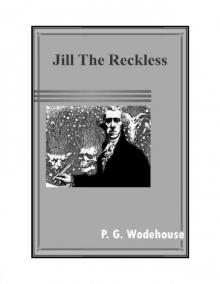 Jill the Reckless
Jill the Reckless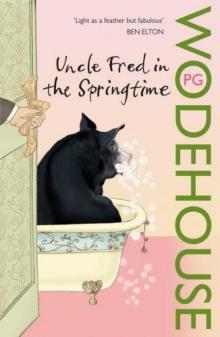 Uncle Fred in the Springtime
Uncle Fred in the Springtime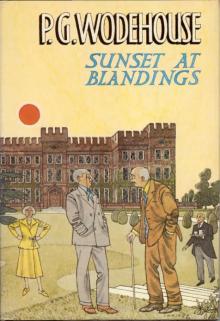 Sunset at Blandings
Sunset at Blandings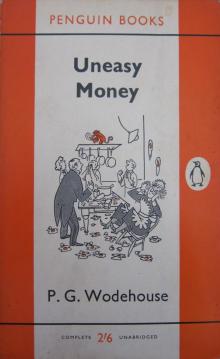 Uneasy Money
Uneasy Money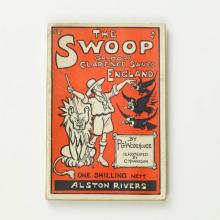 The Swoop! or, How Clarence Saved England: A Tale of the Great Invasion
The Swoop! or, How Clarence Saved England: A Tale of the Great Invasion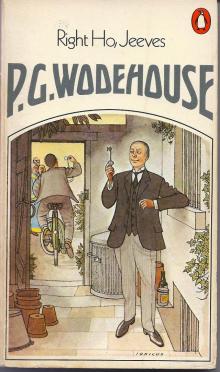 Right Ho, Jeeves
Right Ho, Jeeves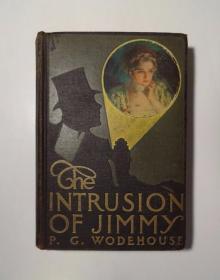 The Intrusion of Jimmy
The Intrusion of Jimmy The Jeeves Omnibus - Vol 1:
The Jeeves Omnibus - Vol 1: Aunts Aren't Gentlemen:
Aunts Aren't Gentlemen: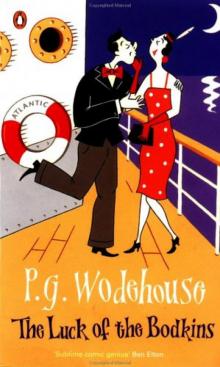 The Luck of the Bodkins
The Luck of the Bodkins The Little Nugget
The Little Nugget Money for Nothing
Money for Nothing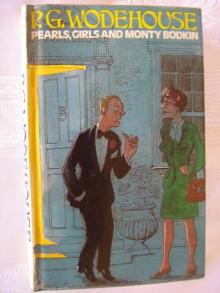 Pearls, Girls and Monty Bodkin
Pearls, Girls and Monty Bodkin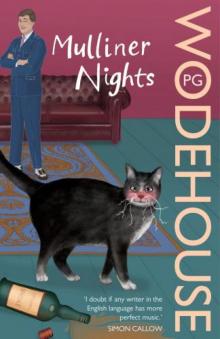 Mulliner Nights
Mulliner Nights Blandings Castle and Elsewhere
Blandings Castle and Elsewhere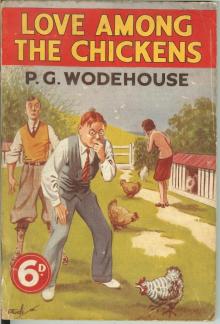 Love Among the Chickens
Love Among the Chickens Carry On, Jeeves!
Carry On, Jeeves!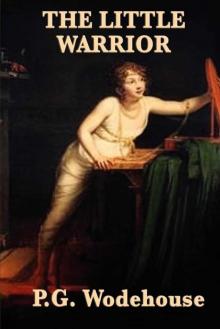 The Little Warrior
The Little Warrior Ice in the Bedroom
Ice in the Bedroom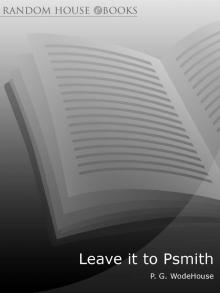 Leave It to Psmith
Leave It to Psmith Thank You, Jeeves:
Thank You, Jeeves: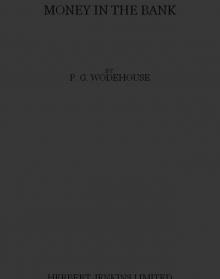 Money in the Bank
Money in the Bank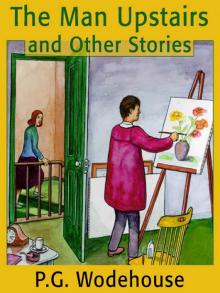 The Man Upstairs and Other Stories
The Man Upstairs and Other Stories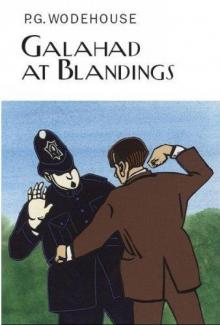 Galahad at Blandings
Galahad at Blandings The Jeeves Omnibus Vol. 5
The Jeeves Omnibus Vol. 5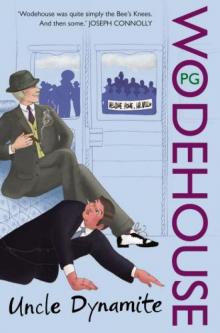 Uncle Dynamite
Uncle Dynamite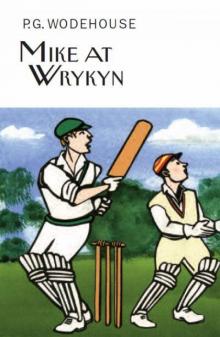 Mike at Wrykyn
Mike at Wrykyn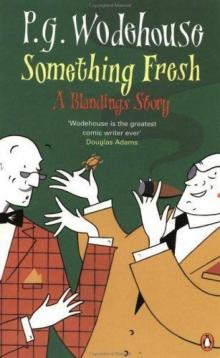 Something Fresh
Something Fresh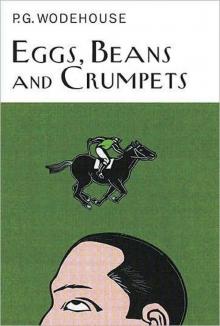 Eggs, Beans and Crumpets
Eggs, Beans and Crumpets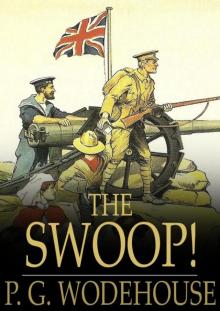 The Swoop: How Clarence Saved England (Forgotten Books)
The Swoop: How Clarence Saved England (Forgotten Books)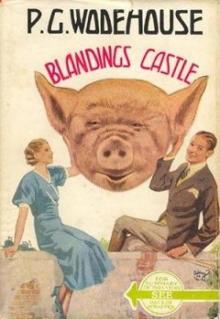 Blanding Castle Omnibus
Blanding Castle Omnibus Wodehouse at the Wicket: A Cricketing Anthology
Wodehouse at the Wicket: A Cricketing Anthology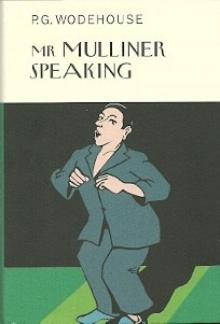 Mr. Mulliner Speaking
Mr. Mulliner Speaking Hot Water
Hot Water The Jeeves Omnibus - Vol 3: The Mating Season / Ring for Jeeves / Very Good, Jeeves
The Jeeves Omnibus - Vol 3: The Mating Season / Ring for Jeeves / Very Good, Jeeves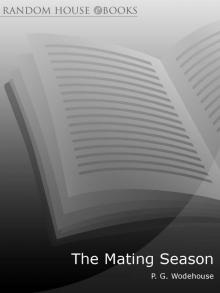 The Mating Season
The Mating Season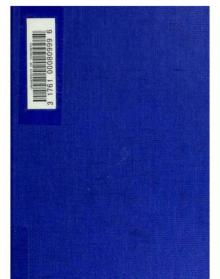 Meet Mr. Mulliner
Meet Mr. Mulliner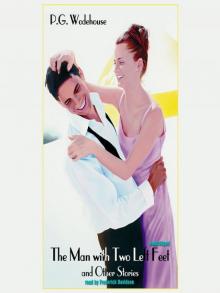 The Man with Two Left Feet, and Other Stories
The Man with Two Left Feet, and Other Stories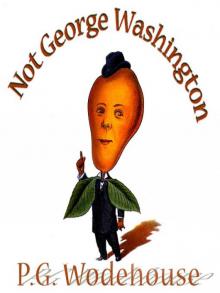 Not George Washington — an Autobiographical Novel
Not George Washington — an Autobiographical Novel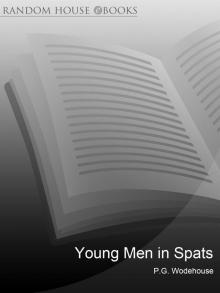 Young Men in Spats
Young Men in Spats The Jeeves Omnibus Vol. 4
The Jeeves Omnibus Vol. 4 A Pelican at Blandings:
A Pelican at Blandings: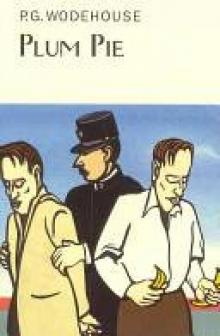 Plum Pie
Plum Pie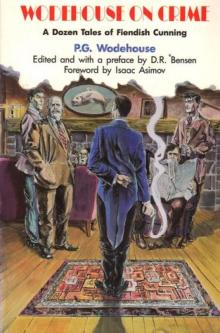 Wodehouse On Crime
Wodehouse On Crime The Jeeves Omnibus Vol. 2: Right Ho, Jeeves / Joy in the Morning / Carry On, Jeeves
The Jeeves Omnibus Vol. 2: Right Ho, Jeeves / Joy in the Morning / Carry On, Jeeves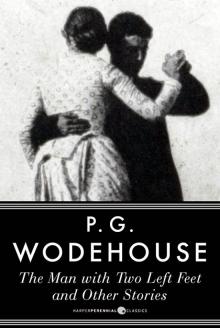 The Man With Two Left Feet
The Man With Two Left Feet Full Moon:
Full Moon: Jeeves and the Feudal Spirit:
Jeeves and the Feudal Spirit: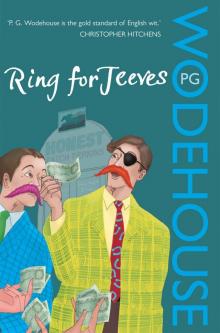 Ring For Jeeves
Ring For Jeeves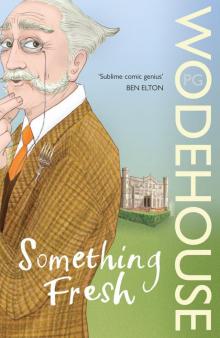 Something New
Something New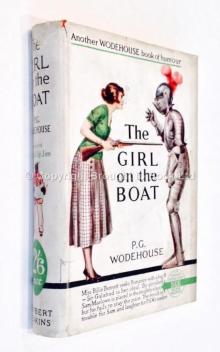 The Girl on the Boat
The Girl on the Boat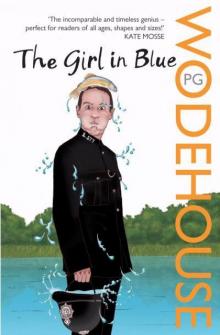 The Girl in Blue
The Girl in Blue Pigs Have Wings:
Pigs Have Wings: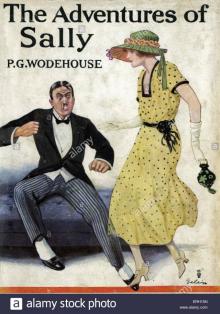 The Adventures of Sally
The Adventures of Sally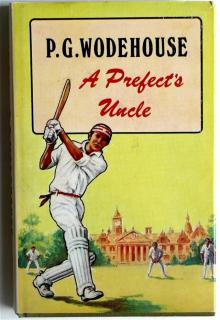 A Prefect's Uncle
A Prefect's Uncle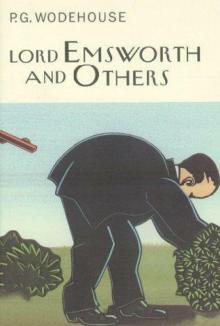 Lord Emsworth and Others
Lord Emsworth and Others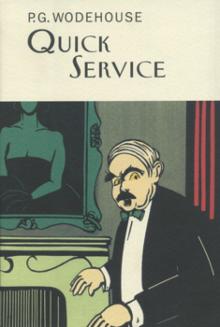 Quick Service
Quick Service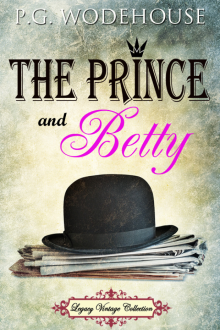 The Prince and Betty
The Prince and Betty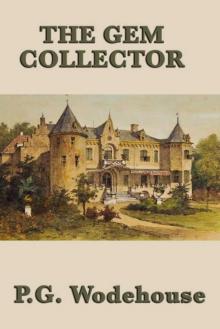 The Gem Collector
The Gem Collector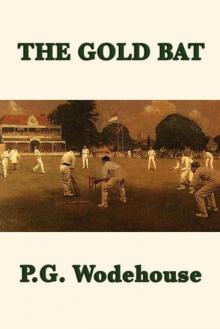 The Gold Bat
The Gold Bat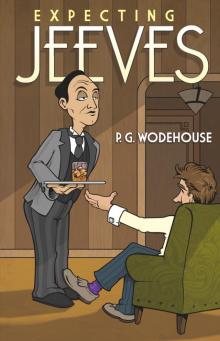 Expecting Jeeves
Expecting Jeeves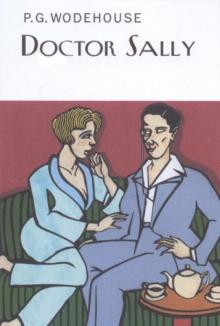 Doctor Sally
Doctor Sally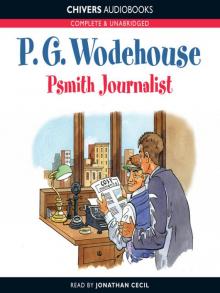 Psmith, Journalist
Psmith, Journalist The Golf Omnibus
The Golf Omnibus Heavy Weather
Heavy Weather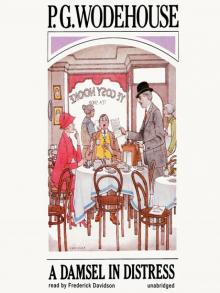 A Damsel in Distress
A Damsel in Distress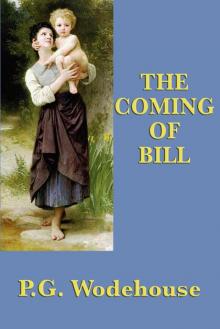 The Coming of Bill
The Coming of Bill Summer Lightning
Summer Lightning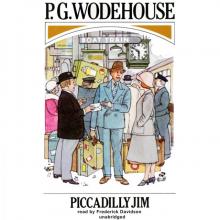 Piccadilly Jim
Piccadilly Jim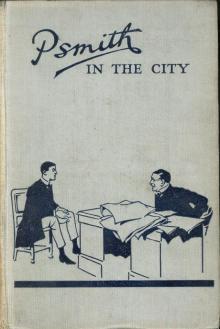 Psmith in the City
Psmith in the City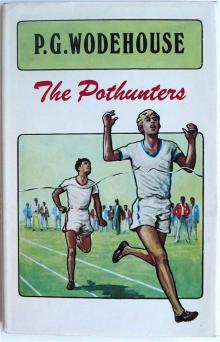 The Pothunters
The Pothunters Service With a Smile
Service With a Smile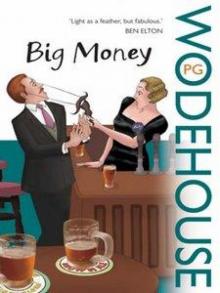 Big Money
Big Money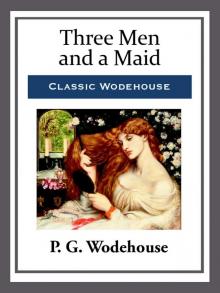 Three Men and a Maid
Three Men and a Maid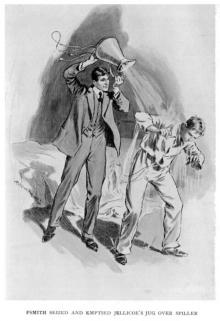 Mike and Psmith
Mike and Psmith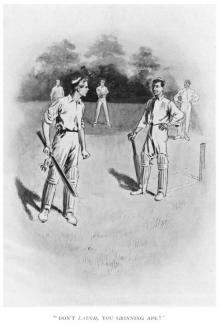 Mike
Mike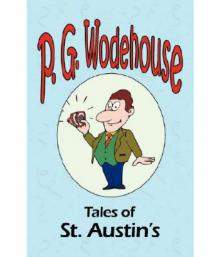 Tales of St. Austin's
Tales of St. Austin's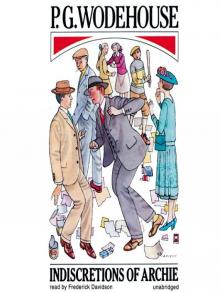 Indiscretions of Archie
Indiscretions of Archie Pigs Have Wings
Pigs Have Wings The Jeeves Omnibus - Vol 4: (Jeeves & Wooster): No.4
The Jeeves Omnibus - Vol 4: (Jeeves & Wooster): No.4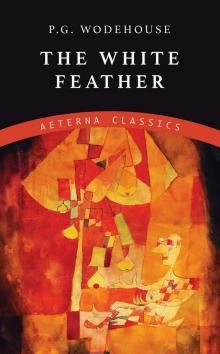 The White Feather
The White Feather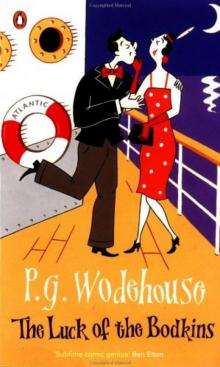 Luck of the Bodkins
Luck of the Bodkins THE SPRING SUIT
THE SPRING SUIT Full Moon
Full Moon Very Good, Jeeves
Very Good, Jeeves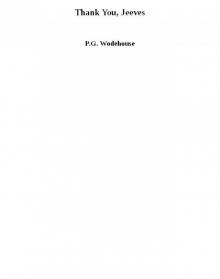 Thank You, Jeeves
Thank You, Jeeves Reginald's Record Knock.
Reginald's Record Knock. Wodehouse At the Wicket
Wodehouse At the Wicket LADIES AND GENTLEMEN V. PLAYERS
LADIES AND GENTLEMEN V. PLAYERS The Jeeves Omnibus - Vol 5: (Jeeves & Wooster)
The Jeeves Omnibus - Vol 5: (Jeeves & Wooster) The Jeeves Omnibus - Vol 1: (Jeeves & Wooster): No.1
The Jeeves Omnibus - Vol 1: (Jeeves & Wooster): No.1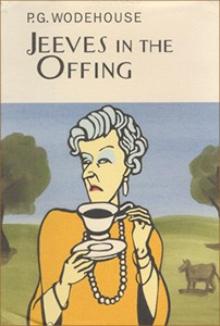 Jeeves in the offing jaw-12
Jeeves in the offing jaw-12